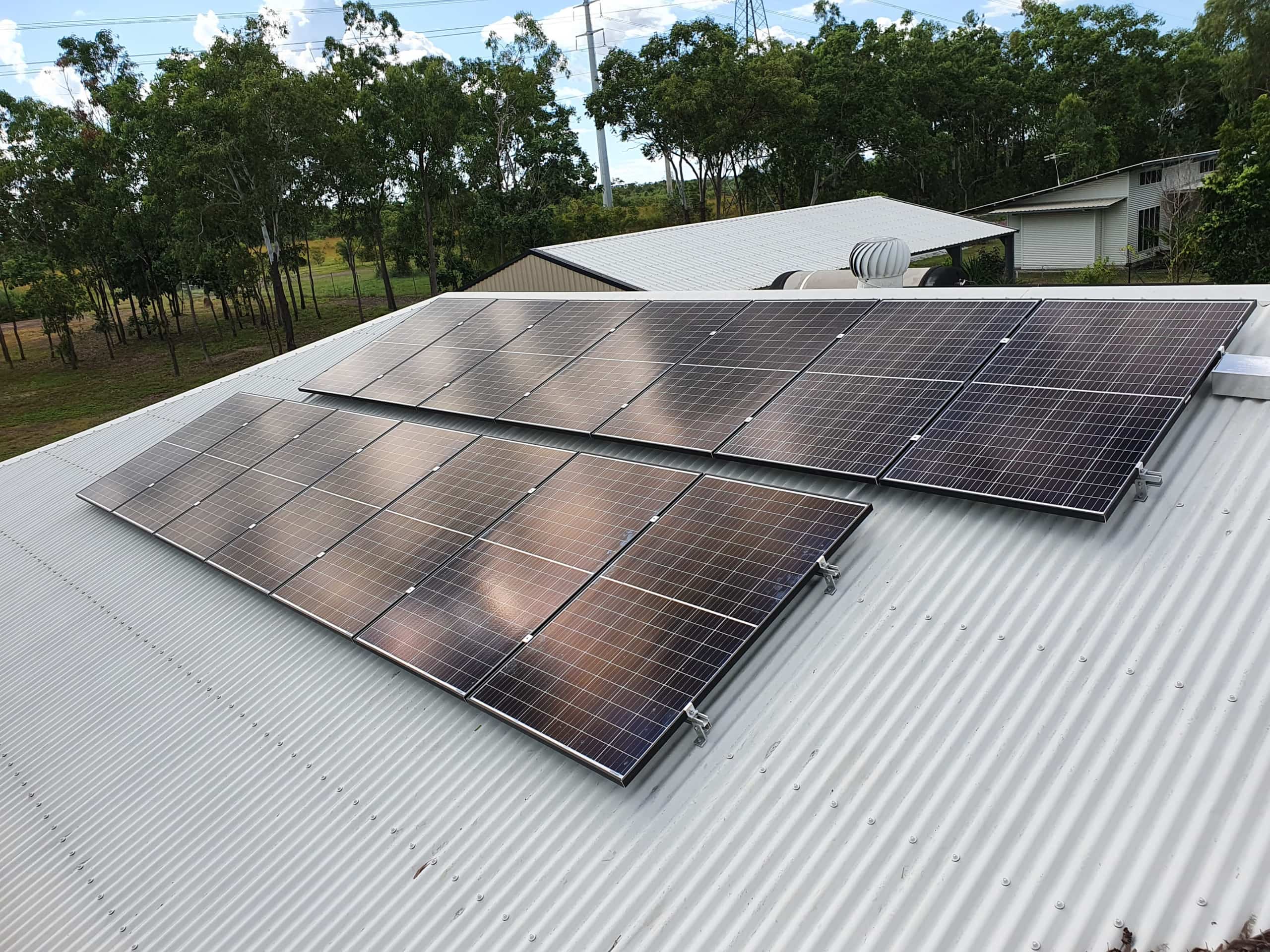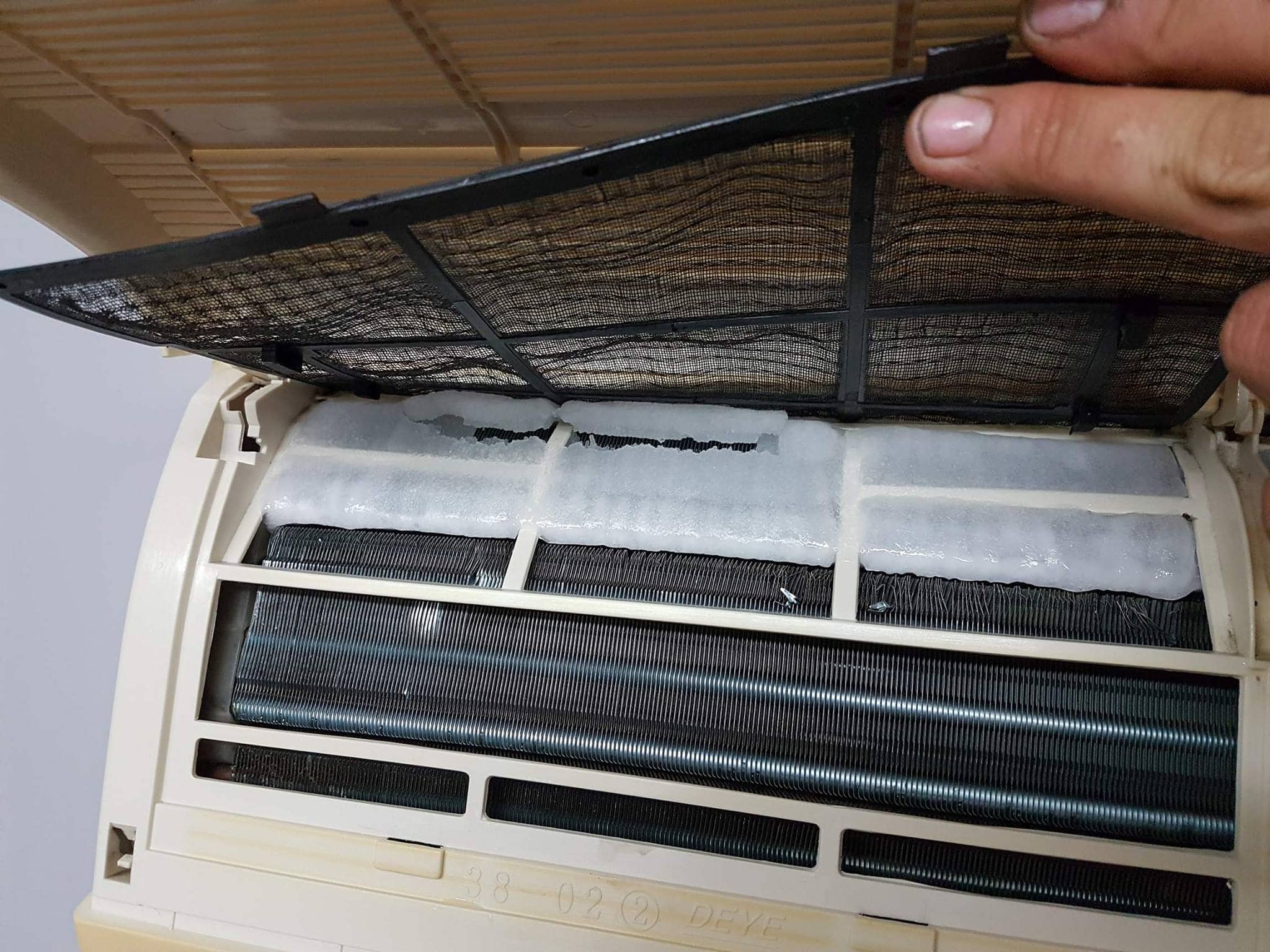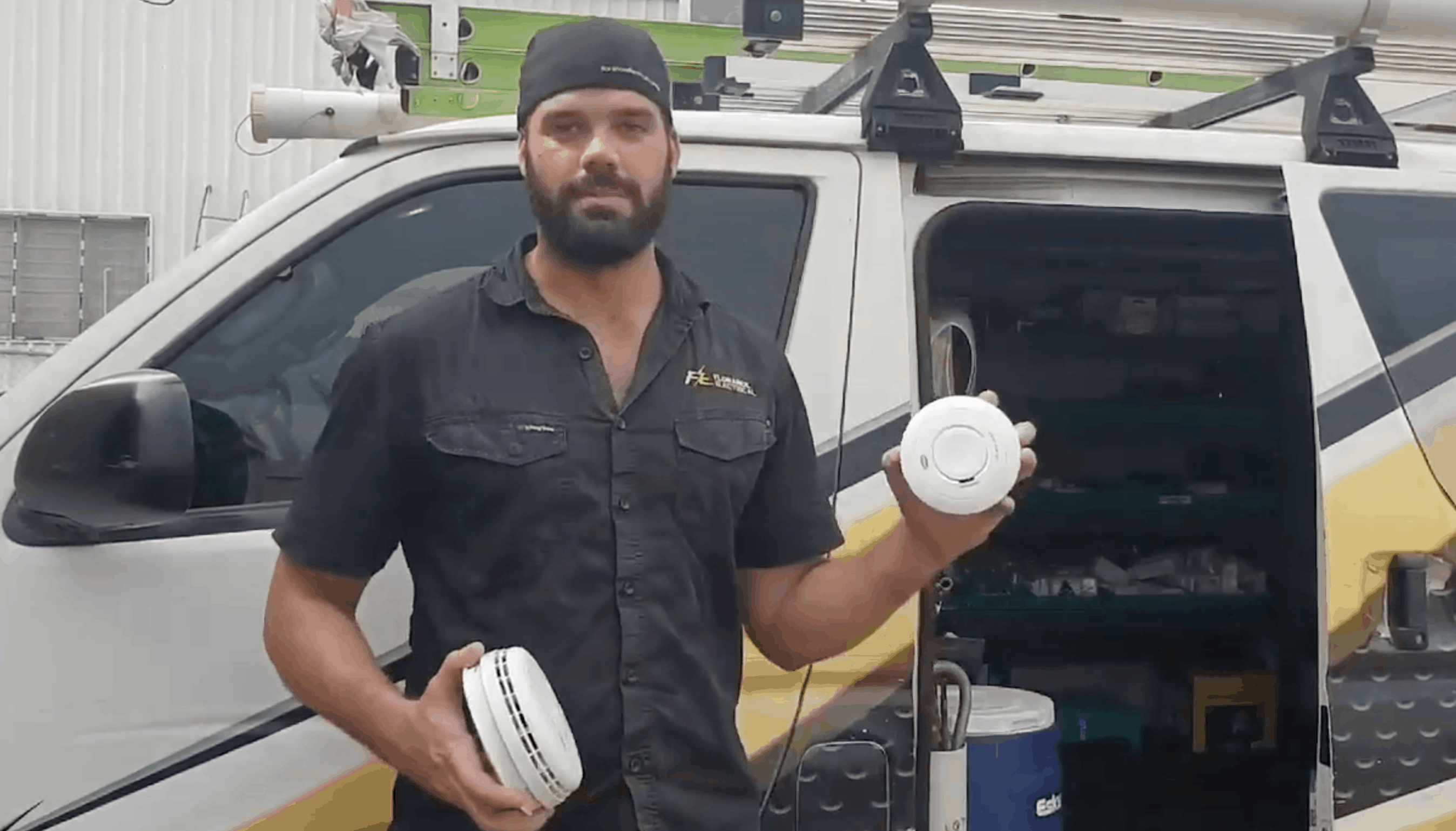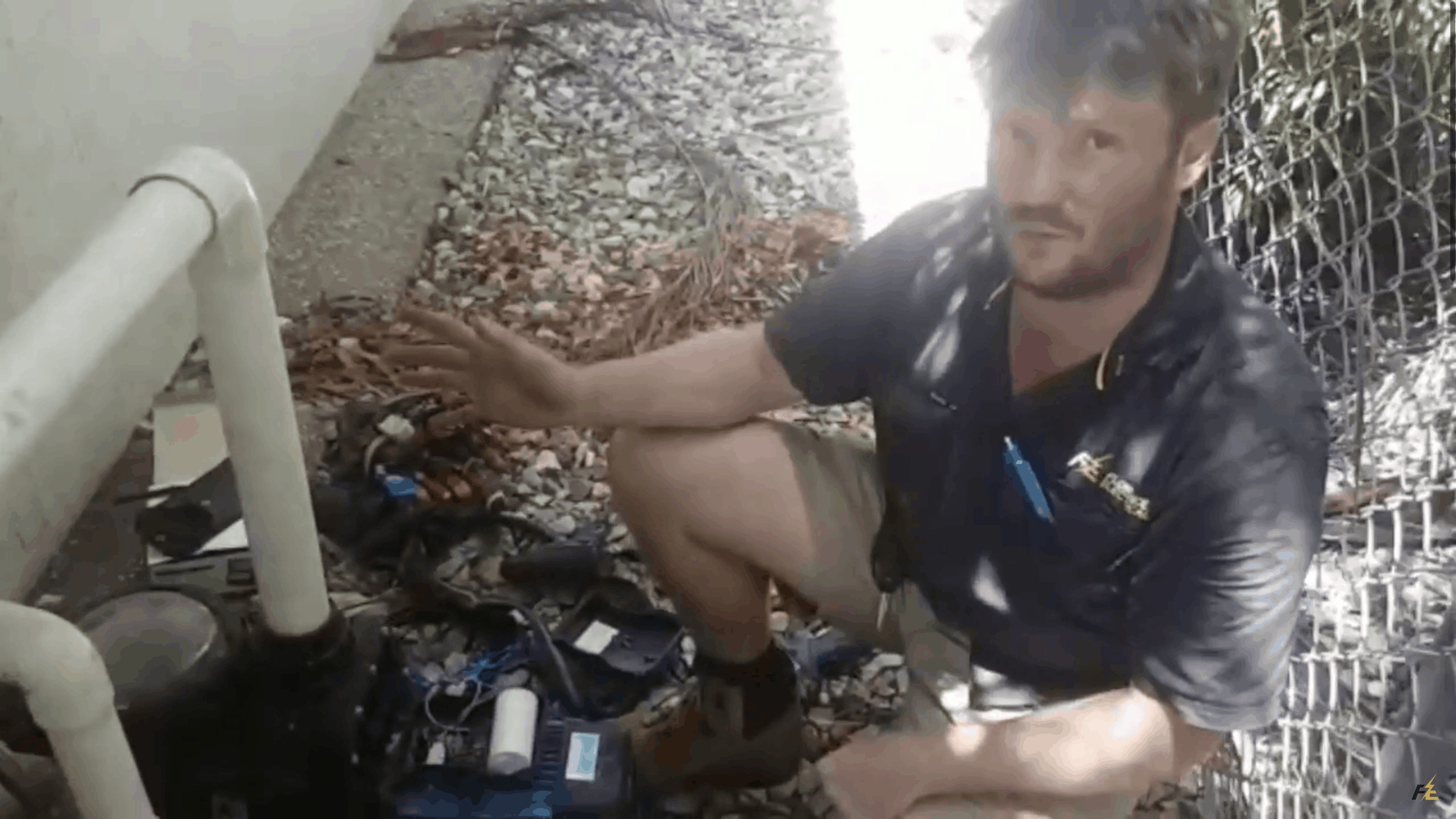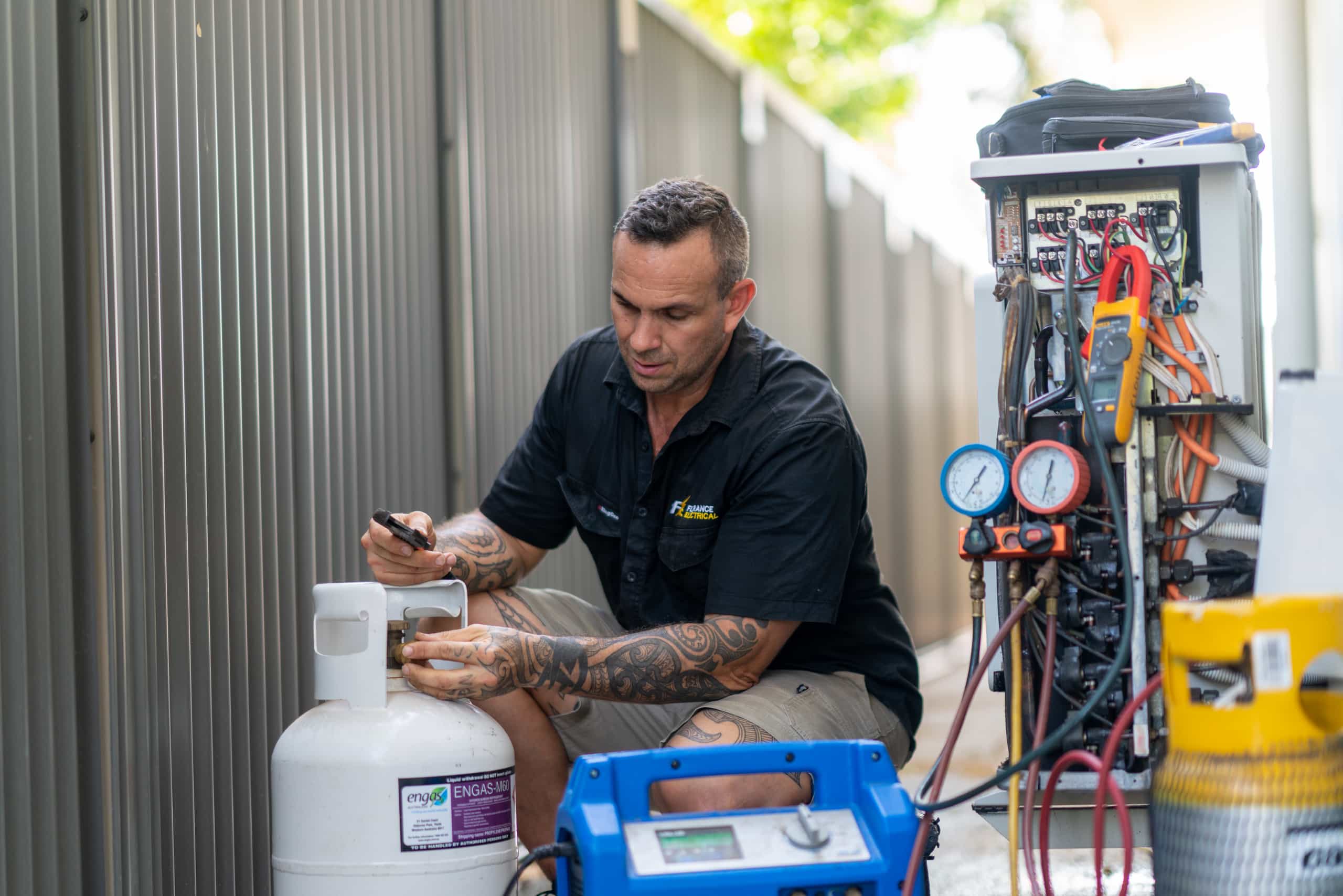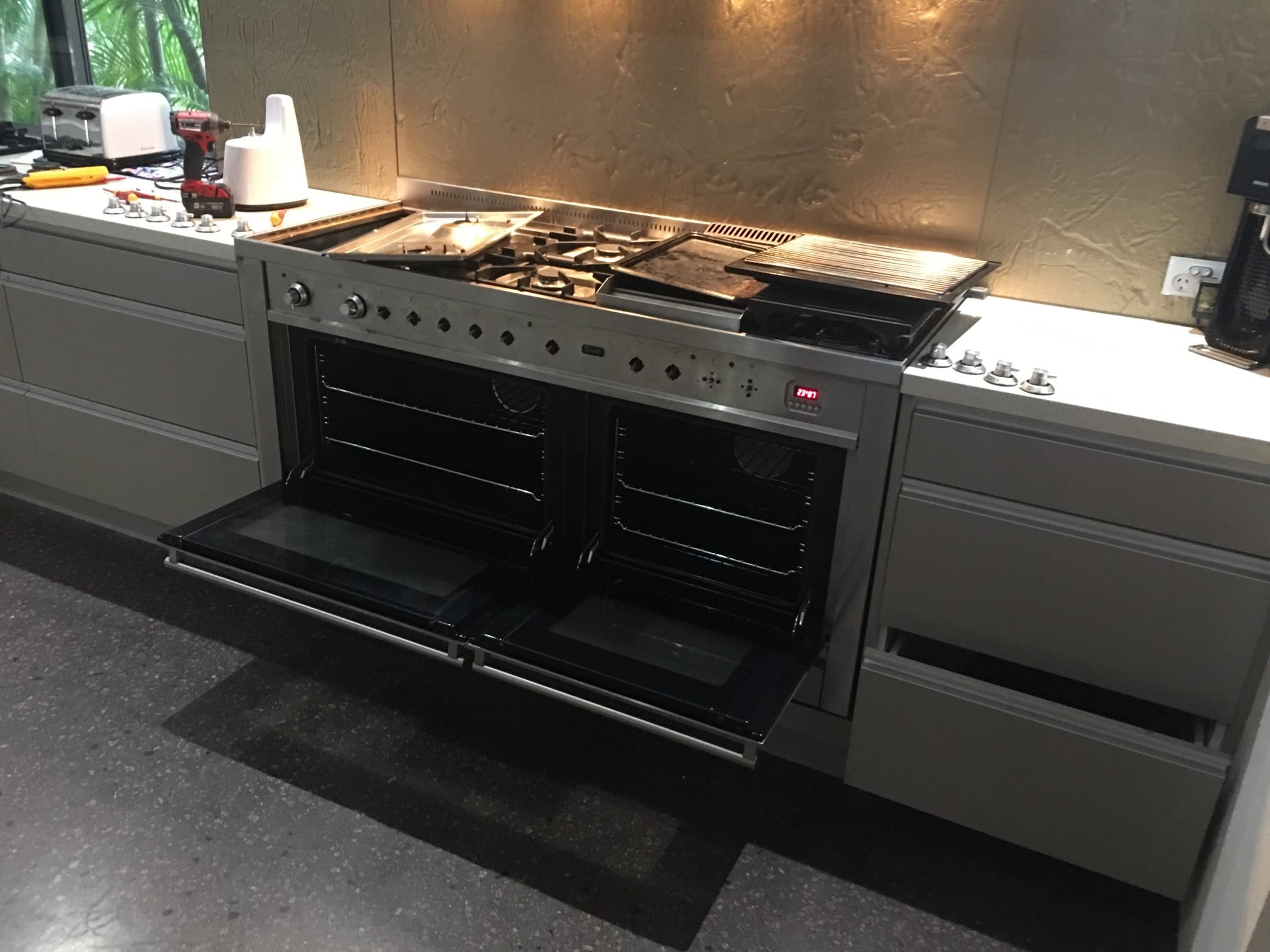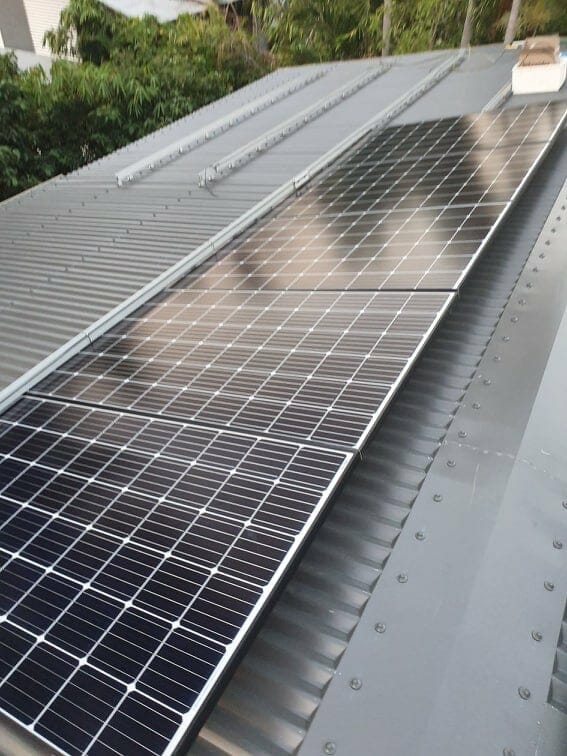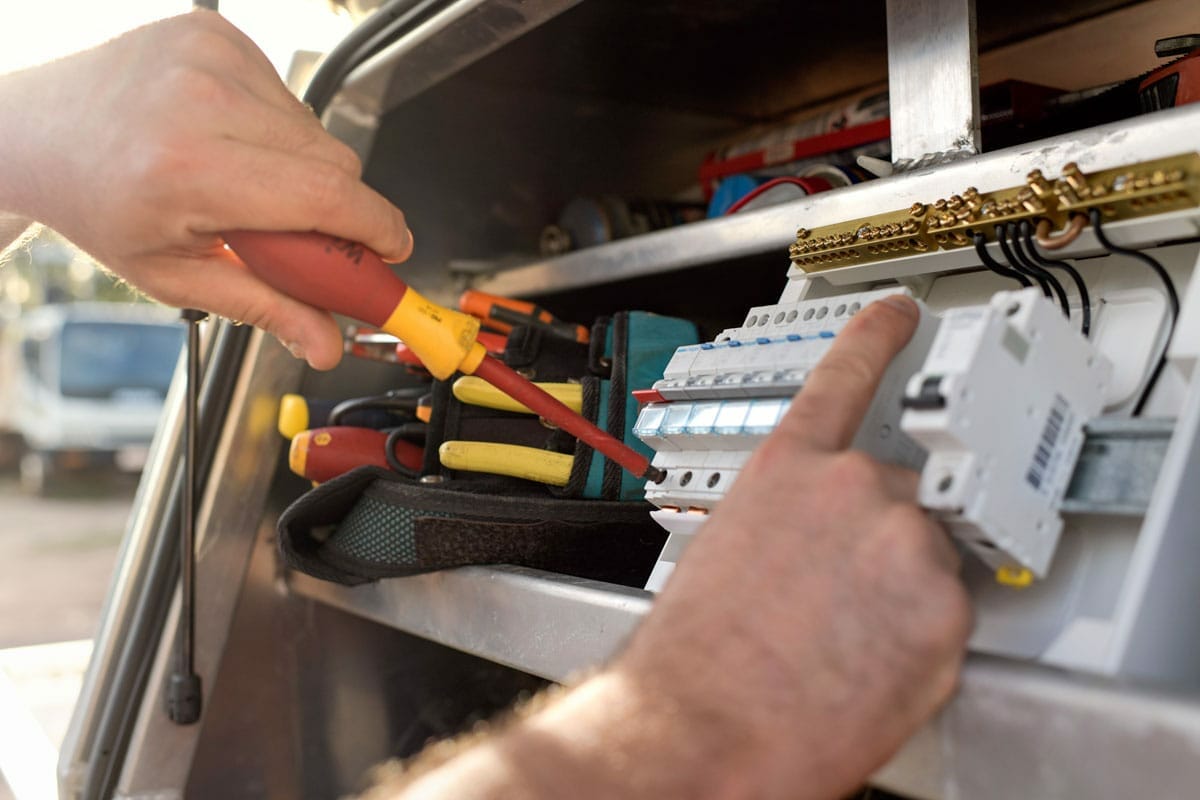Did you know that dirty panels can lead to a 5% – 10% performance decrease?
Continue readingHow To Test & Repair A Halogen Downlight
Trade secrets! How to diagnose various parts and repair halogen downlights.
Continue readingWhy Is My Air Conditioner Leaking?
Have you ever wondered why your air conditioner is leaking water from the indoor (evaporator) unit? Or better yet, how to fix it?
Continue readingHow To Identify Types Of Smoke Alarms
Do you know how to tell the difference between a battery and a 240 V mains powered smoke alarm?
Continue readingFaulty Pool Pump Tripping Power
Faulty Pool Pump Tripping Power
Shock your friends with this post.
Troy from Florance Electrical here!
Now today, we were called out to a property that has a tripped power circuit.
We have posted a handy guide on how to fault find and repair a tripping power circuit in a previous video which covers in-depth the fault finding guide to repairing the tripping circuit. In this guide, the issue was a toaster that was plugged into the kitchen power point but keep in mind that anything can be causing these faults and a process of elimination must be followed in order to narrow down the cause of the electrical fault.
This handy and in depth electrical faulty finding guide can be found here: Repair a tripping safety switch.
We have also made a video guide here: Fix a tripping pool pump.
To show that the cause of a circuit to trip can be anything, we wanted to share this video that has a faulty pool pump that is plugged into an outdoor power point that was the cause of our client’s power circuit tripping issues.
When following the blog text guide or video guides above it is important not to accidentally eliminate or forget about items throughout the property that are plugged into power points that are not always used and maybe forgotten.
Appliances such as: Dishwashers, pool equipment, range hoods, NBN boxes, irrigation boxes, gas appliance ignitors, washing machines and the list goes on.
The two guides linked above explain in detail the manner that we would go through in a property to eliminate appliances before further testing for fixed cabling or circuit device faults. Often when attending properties faults are caused by appliances that are faulting in a dangerous manner that is causing the safety switch to trip and not be able to be reset as the device is operating correctly and disconnecting or tripping the circuit when a fault is detected.
By following these guides you will be either to restore the power without the need for an electrician, or narrow down the fault saving your electrician time and therefore the costs of the job. Further to these guides, this video is a timely reminder to not forget appliances or power points that are not often used and maybe forgotten.
In the Northern Territory and Darwin particularly, we often live in monsoonal rainy conditions. And, we all know that water and electricity do not mix due to the high conductivity of water. Following our guides and further conducting a visual inspection of your property before calling electrician will save you money. You may be able to find the faulty appliance such as Troy has found today – the pool pump and then call an electrician to repair the appliance and further test the circuit to ensure no further faults are present. This will save your electrician’s time and your hip pocket.
Please keep in mind that we do not condone or advise any person who is not qualified to work on electrical circuits to ever try and repair an appliance once it has been identified as the cause of a tripping safety switch. Please call an electrician to verify and repair what has been identified through the process of elimination or visual inspection.
Having a look inside the pool pump at this property which is faulty. The terminal block (cable connection) and capacitor can clearly be seen inside. With our tools and trade knowledge, we have tested the capacitor inside the pool pump and verified that the capacitor is not faulty which is generally the cause of pump failure. Completing a visual inspection it has become apparent to our electrician Troy that there has been moisture present underneath the electrical connection cover which has resulted in rust, water marks and calcium to be present inside the pool pump.
Upon noting this and verifying that the capacitor for the pump tested ok, Troy has then completed further testing of the pump motor windings. The results of this testing has indicated that the windings have failed and are shorted together resulting in the circuit tripping. The motor windings of this pool pump are shorted to earth. Safety switches are designed to detect earth leakage (resistance from the active or neutral conductor to the earth conductor). As these windings have continuity (a circuit or connection) between the earthing conductor, the safety switch has operated and functioned well and disconnected the power supply before a dangerous situation has occurred.
Now! Keep in mind, if your pool pump is identified as the cause of your power circuit safety switch tripping it does not necessarily mean that you need to purchase a new pool pump. Our skilled team are able to repair the majority of pool pumps and will always advise on the most economical option (whether repair or replacement of the pump is best). In most circumstances, we are able to repair pumps saving you further costs as this is generally more economical than replacement of the pump.
Need help? Speak with our friendly team today!
Do I Need AC Repair or AC Replacement?
Does Your AC Need Repair Or Replacement?
Shock your friends with this post.
Loud noises, weak airflow, and the house is always the wrong temperature—your AC is definitely on its last leg. Or is it?
Maybe it can be repaired. Then again, maybe it can’t.
Guessing wrong means wasting money. So how can you tell if your AC needs repair or replacement? Find out with this guide.
In this article, you’ll learn the factors that determine if you need AC replacement or repair. This way, you can avoid wasting money getting multiple opinions from different contractors. You’ll also reduce your chances of being swindled by contractors who offer the wrong solution to milk more money from you.
Before you call in your broken AC, arm yourself with this knowledge.
The Main Reason for AC Replacement
Technically, you’ll probably never need to replace your AC unit. Unless it’s been flattened by a truck, smashed to pieces by vandals, or otherwise destroyed maliciously, whatever’s wrong with it can likely be repaired.
There’s really only one main reason you’d want to replace your AC unit: money. That is, there comes a point when extending the life of the unit is more expensive than replacing it.
Too Many Repairs
Like all appliances, AC systems have a lot of moving components that work together to function properly. As the system ages, these components wear out one-by-one. Repairs become more frequent and keep adding up.
Higher Energy Cost
Furthermore, a system comprised of new parts mixed with old parts is significantly less efficient than a completely new system. Because of this, the old system requires more energy to run and your monthly energy bill keeps going up.
Then, Even More Repairs
Not only that, but the inefficient system has to work harder. Then, its components will wear out faster and repairs are needed more often.
How to Tell If You Need AC Replacement
So, how can you know if your AC has reached that point? When is replacement the cheaper option? Let’s look at some factors that suggest your AC isn’t worth saving.
It’s Too Old
The most obvious factor to look at is the age of your AC system. A well-maintained AC system will function well for about 15 years. If your system is older than this, it’s very unlikely that it’s running efficiently.
Also, the 15-year mark is only a generalization. Systems that are poorly-designed, poorly-installed, poorly-maintained, or overused will age faster. So will systems that aren’t the appropriate type or size for the building.
It’s best to consider how well the system has performed since it reached 10 years of age. Have you had to repair it a lot since then? Does it have to run all the time in order to cool the building?
If the unit is more than 10 years old, has had multiple repairs, and it still runs inefficiently, it’s a good idea to replace it.
The $5,000 Rule
An alternative test is the $5,000 rule. This is where you multiply the age of the system by the cost of a typical repair.
So, if your system is 10 years old and repairs cost $200, that comes to $2,000. Since that’s less than $5,000, it passes the test and shouldn’t need replacing.
If it’s 15 years old and repairs cost $350, the product is $5,250. This indicates that you should consider replacing the system.
Obviously, the $5,000 rule is not an exact science. Still, it gives you more evidence you can use to determine if your air conditioner’s time is up.
You’re Spending Too Much in Repairs
Speaking of repair costs, how much have you been spending on AC repairs? Tally up all the AC repairs you pay for each year and add up the total cost.
Now, check out how much it costs for a new air conditioning system. How does the price of installing a new system compare to what you’re paying now?
Remember: once you put in your new system, it won’t likely need repairing for several years. Whereas, if you keep your old system repairs will become more and more frequent.
Not only that, but your new system will undoubtedly be more efficient than your current system. That’s especially true of ENERGY STAR rated air conditioners. This means that your monthly energy bill will also be drastically reduced when your new system is installed.
Based on this information, that is, the amount of money a new AC unit will save you, you can estimate the cheaper option. Use this information to determine how long it would be until the new system pays itself off. If it’s only 3 years or less, consider replacing it.
You’re Using Outdated Technology
Here’s another thing to consider about your very old AC system. If your system is 15 years old, that means there have been at least 15 years of technological advancement in the field of heating and cooling since it was installed. In other words, even the cheapest system you can install will probably be more efficient than your current system has ever been.
One specific, and very common, example is the type of refrigerant your system uses. Many older systems use a refrigerant called R-22.
This refrigerant has since been deemed not-so-eco-friendly. It has therefore been phased out in favour of the superior R-410a refrigerant.
Now that the demand for R-22 has plummetted, so has the supply. That makes it a rare commodity so the price has skyrocketed.
Long story short, if you ever have to top off the obsolete coolant in your outdated system, you’ll have to pay an outrageously overinflated price. And that’s only one example of the expensive problem of maintaining an outdated cooling system. There are many others.
Your Energy Bill is Ridiculously High
Next, the older and more worn out your system gets, the less efficient it becomes, even after repairs. Soon, your energy bill is higher than it’s ever been and it keeps increasing.
This is may be the most important cost factor on our list. Unfortunately, it can be tricky to diagnose.
This increase in your monthly energy bill due to inefficient cooling can be extremely subtle. The change usually happens so slowly, over a period of many years, that you won’t even notice it happening. But here are some tips to help you determine if this is happening to you.
You’re Broke
Your first clue that your energy bill is much higher than it used to be is your quality of life. Does it seem you constantly have less money than you used to even though nothing about your spending habits has changed?
This could be due to the subtle increase of your energy bill.
Jog Your Memory
Your next clue exists in your own memory. Do you remember the amount of your average monthly energy bill five years ago?
Try to remember something significant that was happening in your life back then. Then, try and remember how much you were paying for electricity around that time period.
Has there been a significant increase since then? Then you should definitely call a professional electrician to give your system an efficiency audit.
Ask Your Neighbors
Your last option is to find out how much your neighbors are paying, without being too imposing, of course. If you know someone in your neighborhood whose house is comparable to yours in size, try and find out how much they are paying for energy.
It doesn’t have to be someone in your neighborhood, either. It can be anyone who pays the same electric company as you do and has a comparable house.
If you are able to find out this information, how does their bill compare to yours? Is it much lower than what you are paying? If so, this is a very accurate indication that your system needs replacing.
Your System Performs Poorly
Lastly, you may have noticed that your system performs poorly in general. Is your house never cool enough, no matter how much your system runs? Does your AC have to run all the time to be effective?
These should never be the case with your AC unit. If it is, especially if it’s already been repaired in the past, you probably need to replace it.
However, there are some things to consider about what’s causing the performance issues. As such, here’s a short checklist on how to investigate this phenomenon further.
Check Your Air Filter
The air filter in your AC unit catches dust and other particles out of the air that cycles through the system. These filters are disposable for a reason.
When they are filled to capacity with air pollutants, they must be discarded and replaced. If they aren’t, they become nothing more than a clog, blocking the airflow.
Changing the air filter regularly is absolutely necessary for AC function. More importantly, as the tenant or homeowner, this is your responsibility.
Nevertheless, a shocking number of AC users aren’t aware of this fact. (So, if this is you, don’t beat yourself up over it.)
If you’ve never replaced your air filter, do this immediately. You should be able to access it from inside the house, usually in the garage. If you have questions, ask your landlord or an HVAC professional.
Check The Return Vents
The return vents are the second-most likely source of airflow blockages. Unlike the supply vents that blow cooled air into your house, the return vents pull the air back in to keep it cycling through AC system.
As the air is sucked into the vents, dust comes along for the ride and clings to the vent. When enough dust accumulates, it blocks the airflow.
You can find these vents on the ceiling or high up on your walls. There are probably more than one of these in your home.
Because they are high up, hard to reach and out of sight, they are often neglected. How do yours look? Are they caked with dust? Take a broom to them to clear them off.
Professional Maintenance
Finally, you should be calling for professional HVAC maintenance twice a year to ensure efficient performance. Have your system checked regularly: once before winter and once before summer.
Next Step
After taking care of these previously-neglected maintenance steps, evaluate if your system is now running properly. You should notice your system cooling your home faster and running less frequently. You should also see a lower energy bill.
If you don’t notice these changes, have your system inspected and get some quotes for AC replacement.
AC Repair or Replacement: Which Do You Need?
So, after reading our guide, what’s your answer? Do you need AC replacement? Or would it be cheaper just to repair your existing AC system?
In either case, we can help. Reach out to our friendly and professional team today for a free quote and inspection.
Secrets of Other Solar Companies: Things They Don’t Want You to Know
Not every solar company is created equal. When it comes to other solar companies, here are the things they don’t want you to know.
Continue readingRepair Rather Than Replace Appliances
At Florance Electrical we are firm believers of repairing appliances rather than replacing.
Continue reading10 Costly Mistakes to Avoid When Purchasing Solar
According to industry research, more than one-quarter of Australian homeowners have invested in solar panel systems.
Continue readingTake a Load Off! How and Why to Avoid Circuit Overload
Are you tired of popping breakers?
It happens all the time, but some of us never seem to learn our lesson.
Continue reading
